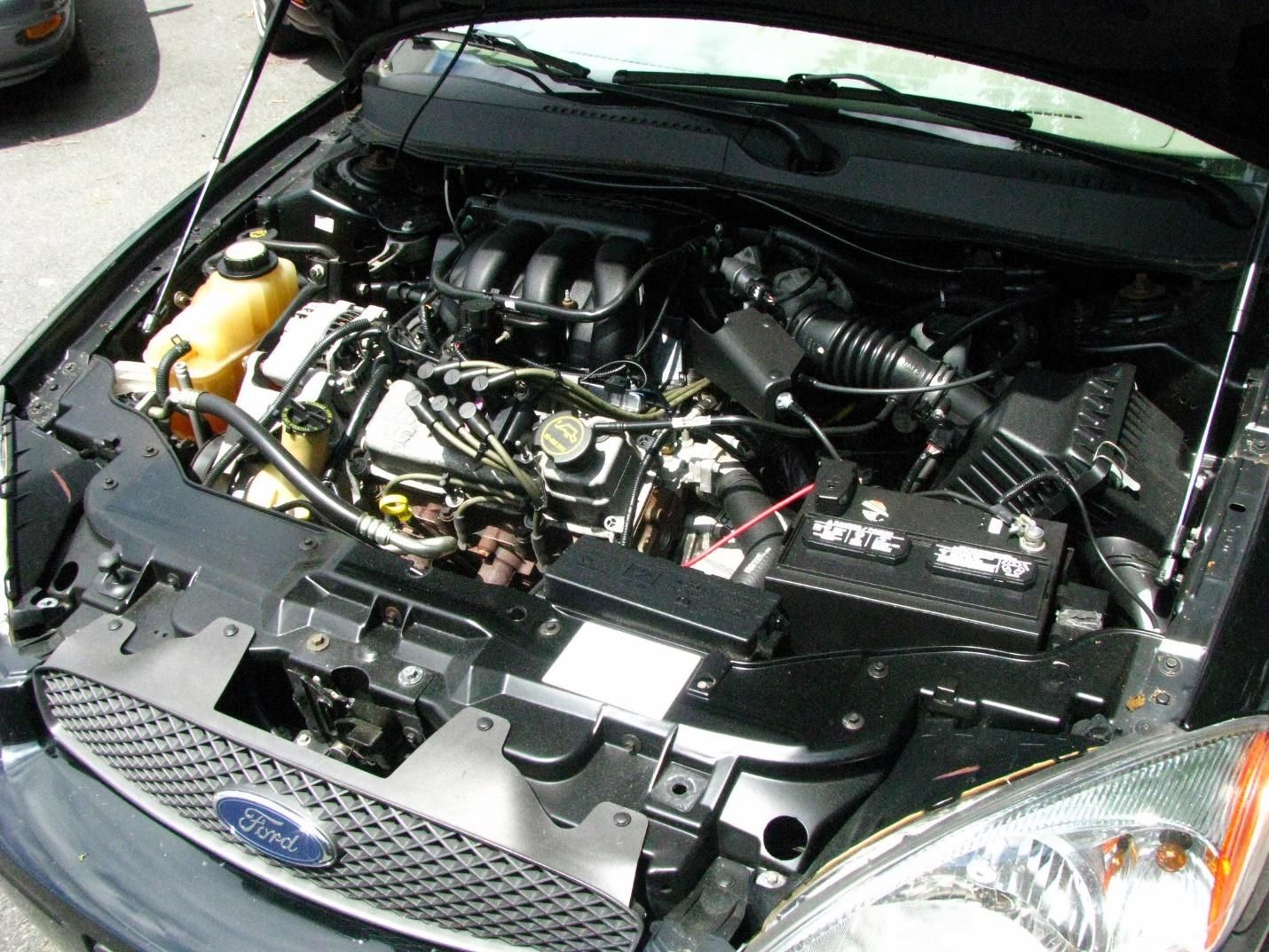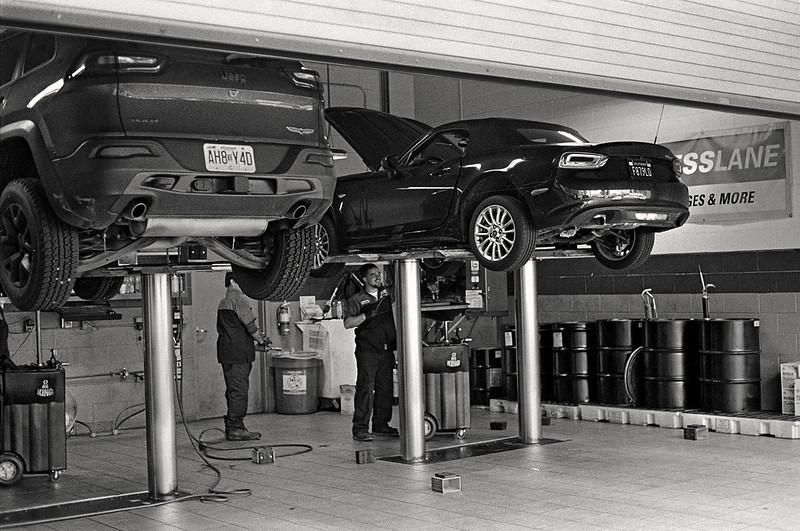Used Car Warranty: Pros and Cons
Image Credit: Rich Nacmias / flickr

A used car warranty, also known as a vehicle service contract, is an insurance policy on your car's health designed to give you peace of mind. If your car breaks down, the warranty will provide you with a financial safety net. At least that's how it's packaged. It's the same old trick played on consumers: we don't want to pay for it, but if we need it, we're glad we did!
Unexpected mechanical failures can happen anytime, especially in older, used cars. Every car owner needs to have a strategy for how they will cover the cost of repairs. Purchasing an extended warranty is one way to budget for these expenses. It's paying for something you may never need just in case.
Image Credit: Robert Couse-Baker / flickr

An extended car warranty: Is it worth it?
Not too long ago, many of us worked on our own cars. We changed our oil, rotated the tires, and even did our own tune-ups. However, today's automobiles are loaded with high-tech features beyond our mechanical abilities. If you can't drive your car without connecting your phone or using the navigation system, it makes sense to get an extended warranty for your car's technology.
You can save money upfront by not purchasing an extended warranty, but is that the right choice? It may be, but there is still a risk. According to one survey, up to 55% of used car buyers who bought extended warranties never used it.
An extended warranty is like health insurance for your car. It protects you from expensive repairs you didn't expect to need. It covers repairs for a specified number of miles and duration of time. Some common examples of coverage are 1,000 miles or 30 days, 12,000 miles or 12 months, and 30,000 miles or 5 years. Keep in mind that the way coverage works is whichever comes first, the mileage or the time.
Even though cars have become more reliable over the years, it can still be expensive to keep your daily driver in good shape. When looking for extended warranties, the best thing to do is call around and get quotes that fit your car and your budget. By doing this first, you can evaluate the cost of each warranty provider and learn about their level of customer service. The goal is to find the best coverage you're willing to pay for.
Depending on what you want, some car warranty companies will let you make a plan that is partially or fully tailored to your needs. But there will always be some things that aren't covered by extended warranty agreements. And occasionally, some people feel trapped with high monthly payments.
Extended warranties will typically not cover regular maintenance, like oil changes, new tires, new brakes, and other similar items. Roadside assistance is not offered with all warranties and is frequently purchased separately.
Image Credit: geralt / Pixabay

What is an extended car warranty?
You can get a vehicle service contract, also called an extended warranty, to help pay for any repairs that may be needed in the future. If your factory warranty is about to expire, think about getting an extended warranty. Even though the manufacturer's warranty and extended warranty sometimes overlap, the extended warranty usually starts after the manufacturer's warranty ends.
The most basic plans from used car warranty providers include most moving or mechanical parts, like the engine and transmission. An extended auto warranty will help cover the cost of some repairs, but not everything, and not forever. Be sure you get the coverage that best fits your needs.
Extended warranties are frequently expensive and don't always cover everything that could go wrong. But if you can't afford unexpected repairs and plan to keep your car for a long time, buying an extended warranty has more pros than cons. And peace of mind is always a nice benefit.
Do Used Cars Come with A Warranty?
Ask your local car dealer if they offer warranties. This offer will depend on where you live. For example, every used car sold by a dealer in Washington State has an "implied warranty of merchantability," which is not something all states are required to do. "Implied warranty" means that the dealer promises that the used car will meet standard driving requirements, be relatively safe, have no major flaws, and perform with the same quality as other cars of the same type.
However, under California law, used auto dealers are not obligated to include warranties for the cars they sell. So let the buyer beware!
Dealerships usually offer limited 30-day factory warranties on used cars. These warranties cover most of the car's important parts, like the engine, transmission, cooling system, and electrical system. Just be sure you understand the type of coverage you're getting before you drive the car off the lot.
Image Credit: Sophieja23 / Pixabay

How Does a Used Car Warranty Work?
If the dealer doesn't offer warranties, you can still get extra protection from a third-party warranty provider. There are too many warranty providers to list here, but a quick search online will yield great results.
If your car breaks down while it's still under warranty, the dealership you bought it from will have your coverage information on file. They should be able to contact the coverage provider and work out the details of your repairs. But your car isn't fixed yet. Even when all parties agree that your warranty is good and the repairs are covered, don't count on the dealership making your car a priority.
Because the coverage provider pays the dealer a low labor rate for warranty services, local dealers try to avoid working on warranty jobs. Dealerships cannot profit much from the cost of warranty replacement parts.
Another thing to consider is that you might have to pay for the repairs yourself first and submit a claim for reimbursement later. This process is often the case with third-party warranties. Recovering what you spent on repairs may take months because the process isn't always swift. If a third-party warranty is something you're thinking about, be aware of the costs upfront.
What does an extended auto warranty cover?
There are many levels of coverage for extended warranties. Some are almost the same as the original factory warranty that came with your car, covering everything from bumper to bumper, while others only cover certain parts, like the engine and transmission. Warranty companies offer varying levels of protection at various price points.
An exclusionary extended warranty is almost as good as your original factory warranty. Because it includes a list of parts not covered by the warranty, it is known as an "exclusionary" warranty.
A stated-component or inclusionary extended warranty only covers the parts of the car that are named in the contract. Inclusionary warranties are less expensive than exclusionary warranties because they typically cover less. To make sure that an inclusionary warranty will address major issues with the vehicle you're buying it for, be sure to review the list of specified parts and coverage.
Only the mechanical components of a car, like the engine, transmission, axles, and differentials, are covered by powertrain extended warranties. They do not safeguard auxiliary systems, such as navigation or air conditioning. Again, make sure you get the coverage you need.
Extended warranties will typically not cover regular maintenance, like oil changes, new tires, new brakes, and other similar items. Roadside assistance plans are frequently purchased separately. Read everything, even the small print, in your extended warranty to find out what it covers and what it doesn't.
Image Credit: NikolayFrolochkin / Pixabay

How much do extended car warranties cost?
The rate you'll pay, and the range of coverage options depend on your car's age, make, model, mileage, and the specifics of the insurance plan. Extended warranties can start around $1,000 and go up to $3,000 or more. If you include the amount of the warranty in your auto loan, you will be required to pay interest and other fees on top of the cost of the warranty. However, there is less out-of-pocket expense for the small increase in your monthly payments.
There are many variables that might affect the cost of your coverage, so prices will vary. Decide on the needed coverage and length of coverage before you agree to it. The warranty does not have to be purchased on the same day as the vehicle, so you can mull it over and decide later. But if you are financing your car, you should be able to include the cost of the warranty in your loan if you buy it on the same day.
Repair shops may also require a deductible before work can begin. Typically, deductibles are requested either per repair or per warranty service visit. It's critical to understand how your plan's deductibles operate. If you take your car to the repair shop more than once, you may have to pay multiple deductibles for the same problem.
Keep in mind that you have other automotive expenses as well! Don't forget to budget for fuel and maintenance costs, as well as registration and insurance. Add up all the car-related expenses you'll have before deciding how much you can afford for an extended warranty.
Should you buy an extended car warranty on a used car?
An extended warranty on a used car is frequently justified. It's a terrific method to cut costs on pricey repairs and it might keep your car in good working order for a very long time. But not all warranties are created equally. If the price is reasonable, ask yourself what it will cover and compare it to the out-of-pocket costs you would incur for any possible repairs.
If the make and model of the car have a history of being unreliable, it may be worth it to get an extended warranty. However, the goal of your warranty provider is to make money, just like every other business. They don't make much profit by approving every claim that lands on their desk. As a result, it's possible that you'll spend more on the extended warranty than you would on any repairs to your car.
Check the reputation of the company offering the extended warranty when making your purchase. Some warranty providers are well-known and established across the country, while others are not. If your car develops significant issues, unreliable or regional providers might not honor the warranty.
Natural disasters, including fires, floods, earthquakes, and hailstorms, will void your warranty. If your car's odometer has been disconnected, tampered with, or replaced, the dealership won't be able to tell how many miles are on your car.
Other reasons for voiding your warranty:
Off-Road Driving. Driving carelessly or Racing. Using the incorrect fluids. Overloading beyond capacity. Poor or neglected auto maintenance.
Are extended car warranties worth the money?
Is it true that extended auto warranties typically aren't worth the money you pay for them? According to a Consumer Reports poll, most used car buyers who purchase an extended warranty save less on repairs than they paid for the coverage. However, an engine or transmission repair will set you back thousands of dollars.
Nevertheless, some components will wear out as vehicles age. The engine and transmission are the two biggest costs, but you could also incur significant costs for repairs to the airbags, fuel injectors, suspension, timing chain, and catalytic converter. It's possible to keep your automobile on the road longer if your warranty covers these repairs.
A well-kept older car has many benefits, such as stable costs for maintenance and repairs, lower insurance rates, and the chance of being paid off. Once your car is paid for, you can save that money for your next car and an extended warranty.
Used Car Warranty: Conclusion
Many people will buy a used car to save money. Purchasing a supplemental warranty is a smart choice, but an extra expense. If your car needs repairs while it is covered, maintaining it will save you money not only because you won't have to purchase a new vehicle but also because insurance costs and registration costs are lower.
When shopping for a used car or extended warranty, find a trustworthy warranty provider with high rankings from industry professionals in the automobile field. Make sure your extended warranty plan provides a decent value for the coverage you get. Add up your total costs, including out-of-pocket expenses with no coverage, and do what's best for you. Or, to put it another way, only you can decide if the juice is worth the squeeze.
Updated